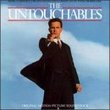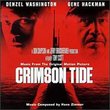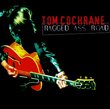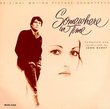| All Artists: Christophe Beck Title: Percy Jackson & The Olympians: The Lightning Thief - Original Motion Picture Soundtrack Members Wishing: 0 Total Copies: 0 Label: Abkco Original Release Date: 1/1/2010 Re-Release Date: 2/16/2010 Album Type: Soundtrack Genre: Soundtracks Style: Number of Discs: 1 SwapaCD Credits: 1 UPC: 018771032427 |
Search - Christophe Beck :: Percy Jackson & The Olympians: The Lightning Thief - Original Motion Picture Soundtrack
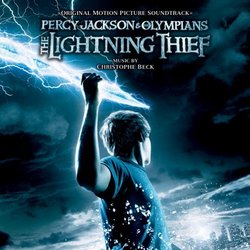 | Christophe Beck Percy Jackson & The Olympians: The Lightning Thief - Original Motion Picture Soundtrack Genre: Soundtracks
Based on the first of a series of best selling novels, PERCY JACKSON & THE OLYMPIANS: THE LIGHTNING THIEF is set in a modern world where the twelve gods of Mount Olympus (perched 600 stories above the planet on New Yor... more » |
Larger Image |
CD DetailsSynopsis
Album Description Based on the first of a series of best selling novels, PERCY JACKSON & THE OLYMPIANS: THE LIGHTNING THIEF is set in a modern world where the twelve gods of Mount Olympus (perched 600 stories above the planet on New York's landmark Empire State Building) are alive and are creating a new race of young mythological heroes who are demigods-- half mortal, half god. Percy, the teenage son of Poseidon, is suspected by Zeus of stealing his lightning bolt, the universe's most powerful weapon. To prove his innocence and avoid a devastating war among the gods, Percy embarks on a transcontinental odyssey to find the real thief. The film's score was composed by Christophe Beck who won an Emmy for his work on Buffy The Vampire Slayer. Beck has scored numerous films including The Pink Panther, Bring It On, I Love You Beth Cooper, American Wedding, Under the Tuscan Sun, School for Scoundrels, License to Wed, Fred Claus, Charlie Bartlett, Drillbit Taylor and others. Directed by Chris Columbus and Starring Logan Lerman, Brandon T. Jackson, Alexandra Daddario, Sean Bean, Pierce Brosnan, Steve Coogan, Rosario Dawson, Catherine Keener, Kevin McKidd, Joe Pantoliano, Uma Thurman, and Ray Winstone. Similarly Requested CDs
|
CD ReviewsGood music on a badly-sequenced album Jon Broxton | Thousand Oaks, CA | 03/01/2010 (3 out of 5 stars) "Greek mythology has proven to be a fertile breeding ground for Hollywood films for decades. From the gods of Mount Olympus - Zeus and Poseidon, Aphrodite and Apollo - to human figures such as Jason, Odysseus, Achilles and Perseus in stories such as The Iliad and The Odyssey, these names are engrained into western culture and civilization, and provide classical inspiration for storytellers across the world. When you take these myths and combine them with a very modern variation on the Harry Potter world you end up with Percy Jackson & the Olympians, a series of novels by author Rick Riordan, whose first effort, "The Lightning Thief", has now been turned into a major motion picture.
Directed by Chris Columbus - who also directed the first two Harry Potters - the film stars Logan Lerman as the eponymous Percy, Alexandra Daddario and Brandon Jackson as his best friends, and a whole host of character actors as the Gods and creatures of mythology, including Pierce Brosnan, Uma Thurman, Sean Bean, Steve Coogan, Kevin McKidd, Rosario Dawson, and Melina Kanakaredes. The plot revolves around Percy, a typical American high school teenager, whose world is turned upside-down when it is revealed that he is the son of Poseidon, and has been accused by Zeus of stealing the legendary `master bolt', the owner of which can wield great power. Before long Percy and his friends find themselves beset on all sides, being attacked by mythological creatures, while attempting to find the real lightning thief and return the bolt to its rightful place amongst the Gods, who now reside atop the Empire State Building. The music for The Lightning Thief is by French-Canadian composer Christophe Beck, who was hugely popular in the 1990s as a result of his work on the Buffy the Vampire Slayer TV series, but who has seemingly become stuck in a rut of silly comedies and small indie dramas since graduating from the small to the big screen. With the exception of The Seeker - The Dark is Rising in 2007 (still unreleased on CD), The Lightning Thief represents his first foray back into the fantasy genre in over a decade, and with it he proves he still has the writing chops to get the job done, even if his album sequencing skills leave a little to be desired. In terms of the music itself, there is much to be admired. Written for an outsized symphony orchestra and imposing choir, it features some of the largest musical forces yet employed by Beck in his theatrical career. The ascending 4-note main theme, which is present throughout the score, is strong and memorable, and proves to be versatile enough to be played in a variety of styles as the score progresses. In the opening "Prelude" it begins softly, tenderly on woodwinds, before emerging into a series of noble, stately brass refrains. Later, in cues such as "Son of Poseidon", it takes on a magical aspect as young Percy discovers his past and his destiny, while the showstopping "Hollywood" cue has a rip-roaring march-like beat that is quite spectacular. In action cues such as "The Minotaur", "Victory", "The Fury", "The Hydra" and "Fighting Luke" it forms part of the each cue's rhythmic undercarriage, underpinning the various orchestral flourishes and rampaging percussive ideas with a grounding in thematic consistency; despite all the instrumental histrionics, rushing string runs, pounding drums and blaring brasses, at it's heart it remains Percy's story. Having said that, the energetic performances and enormous orchestral powers that Beck unleashes during some of these action cues are impressive indeed, with "The Hydra" and the two "Fighting Luke" cues especially ranking among the most satisfying action cues of Beck's career to date. In addition to the action material, Beck also finds time to write a spooky choral motif for the serpentine "Medusa" that is very effective at creating a chilling atmosphere, as well as some tender, intimate, thematically rich moments in cues such as "The Parthenon" which highlight Beck's talent for pleasing harmonies. Similarly, "Lost Souls" and "Hades" have some dark and portentous chords and a malevolent aspect, accompanying Percy's journey into the darkest depths of the underworld. What's also impressive is that, 99% of the time, Beck's music is classically orchestral, with little to no reliance on any electronic enhancements or synthesized samples, except when required to add a nuance or texture to a certain scene that an orchestra is unable to provide. This acoustic approach is sure to please traditional film music fans, as it did with me. The main problem, however, is the sequencing of the album, and the resulting repetitiveness that plagues the score as a whole. The first few times I sat and listened to the score, I found myself running out of patience with the score after around half an hour, having become frustrated by the album's presentation. Every cue seemed to be either a variation on the main theme, or an enormous action cue, with very little difference from one track to the next, and by the time 35 minutes or so had elapsed I had had enough, despite there still being more than 20 minutes or running time left. The irony of this, unfortunately, is that some of the best tracks on the album actually appear at the end, notably the two "Fighting Luke" cues and the massively heroic "Homecoming", and that as a result listeners whose attentions begin to wander will miss out on some of the score's most impressive moments. While this increasingly ubiquitous practice of squeezing as much music as possible onto an 80-minute CD is good from a collector's standpoint, conversely the art of creating a coherent and cohesive listening experience seems to be dying out. With some pruning, re-ordering, and less strict adherence to film order, The Lightning Thief would make a spectacular 40-45 minute score, easily one of the highlights of Christophe Beck's career. Even now, the music itself is at times quite wonderful, and will surely appeal to anyone with a fondness for large scale orchestral action-fantasy scores. Unfortunately, the album presentation as it stands makes listening to the score in one sitting something of a chore, and although it galls me somewhat to only award 3½ stars to a score with this many impressive parts, it is for this reason that the album's overall rating suffers." |

 Track Listings (19) - Disc #1
Track Listings (19) - Disc #1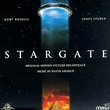
![Cars [Original Soundtrack] [Collector's Edition]](https://nationalbookswap.com/cd//m/94/5294/835294.jpg)
